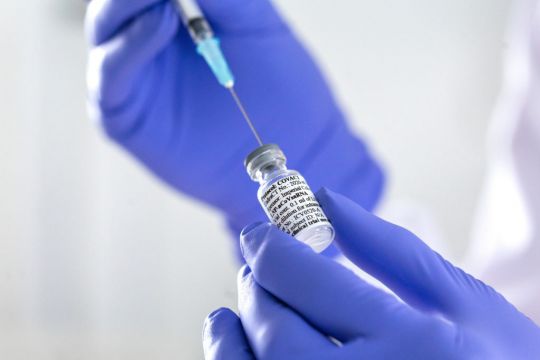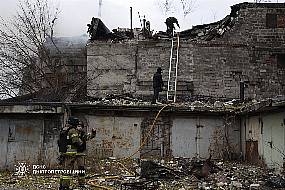A developer behind what is arguably the world's most promising Covid-19 vaccine candidate has said he is optimistic its protection against the virus would last for at least a year.
Pfizer and BioNTech became the first drugmakers to release successful trial data for a Covid-19 vaccine today in a potentially historic milestone.
Here is everything we know about the vaccine candidate that could play the ultimate part in changing the trajectory of the pandemic.
How effective is it against Covid-19?
The companies developing the vaccine have said it is more than 90 per cent effective, based on initial data.
An interim analysis was conducted after 94 participants in the vaccine trial developed Covid-19, examining how many of them had received the vaccine versus a placebo. The company did not break down exactly how many of those who fell ill received the vaccine.
Still, over 90 per cent effectiveness implies that no more than eight of the 94 people who caught Covid-19 had been given the vaccine, which was administered in two shots about three weeks apart.
The efficacy rate is well above the 50 per cent effectiveness required by the US Food and Drug Administration for a coronavirus vaccine.
To confirm the efficacy rate, Pfizer said it would continue the trial until there are 164 Covid-19 cases among participants, which could be done before the end of November.
How long will it protect against Covid-19?
The reality is we're not yet sure.
BioNTech Chief Executive Ugur Sahin said he was "optimistic" the immunisation effect of the vaccine would last for a year.
He said research on recovered patients had shown that those with high antibodies levels to begin with have not experienced a sharp drop in those levels, and the same would likely go for vaccinated people.
Wait - how does the vaccine work?
The vaccine candidate, called BNT162b2, is based on messenger RNA (mRNA) technology, which relies on synthetic genes that can be generated and manufactured in weeks.
Are there any safety concerns?
The companies developing the vaccine said they have so far found no serious safety concerns, priming it for possible speedy regulatory approvals.
When will it become available?
Pfizer and BioNTech expect to produce up to 50 million doses, or enough to protect 25 million people this year.
To save time, the companies began manufacturing the vaccine before they knew whether it would be effective. They expect to produce up to 1.3 billion doses of the vaccine in 2021.
Pfizer has said it could file for emergency approval in the United States in November, and it expects to seek broad emergency use authorisation for people aged 16 to 85 there in coming weeks.
To do so, it will need to have collected two months of safety follow-up data on around half of the study's roughly 44,000 participants, which is expected in late November.
How will it be distributed?
There will be logistical challenges in distributing the vaccine, with developers saying the genetic compound would have to be shipped and centrally stored at minus 70 degrees Celsius for the first three months.
For transport to and at the site of administration, it can be kept for up to five days at fridge temperatures.
The developers expect more date on the molecular stability of the vaccine by December, which may allow them to keep the vaccine in a fridge for longer than five days and "simplify things".
How much will it cost?
Based on the supply deal with the United States, the price tag amounts to $39 (€33) for what is likely to be a two-dose course of treatment.
Pfizer has said it will not charge other developed countries a lower price for the vaccine than what the United States will pay.
How long did it take for all this to happen?
Pfizer signed a deal worth up to $750 million with BioNTech in March to co-develop the potential vaccine, and target clinical trials in April.
Testing of the vaccine began in Germany in April, with further trials following in the United States in May.
Is it time to celebrate the end of the pandemic?
The data surrounding the vaccine has yet to be peer-reviewed or published in a medical journal.
Pfizer has said it would do so once it has results from the entire trial.







